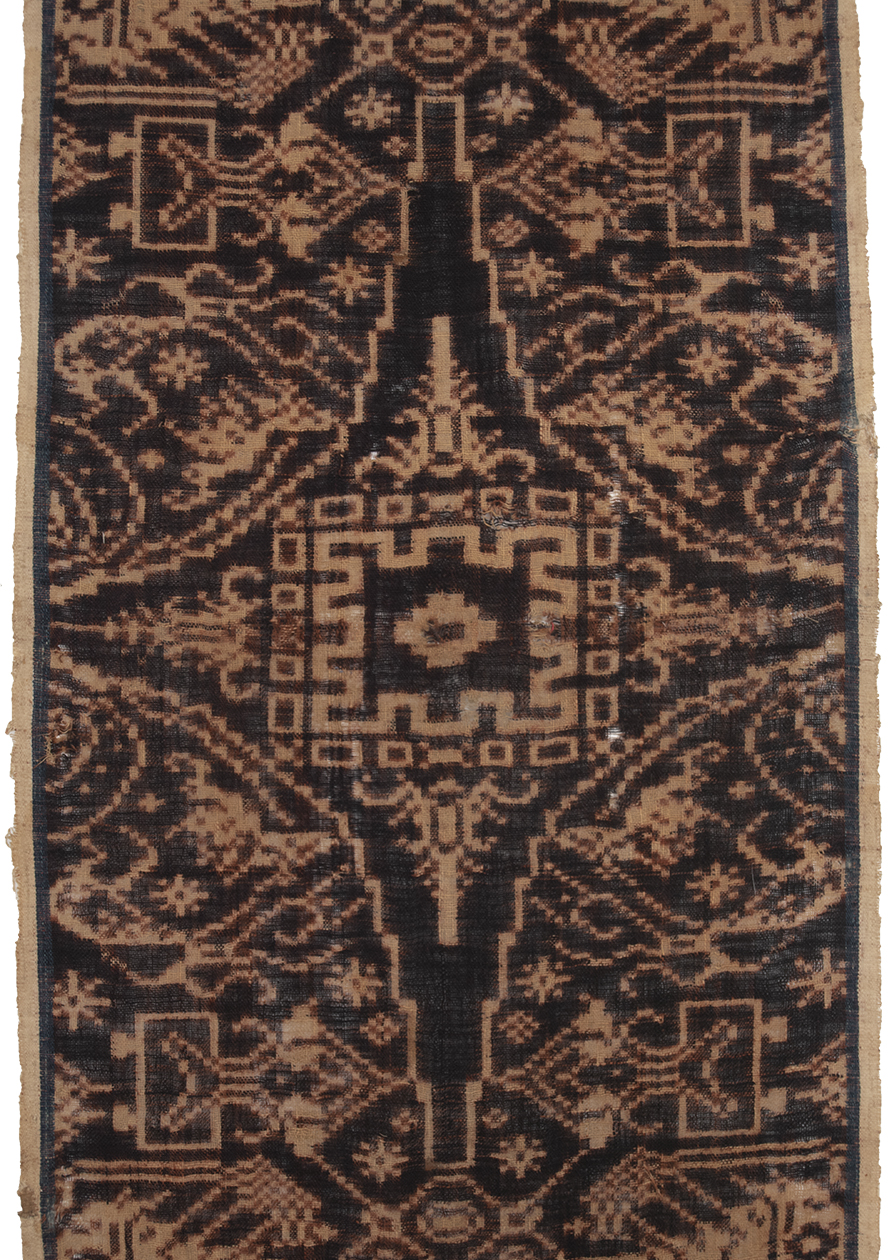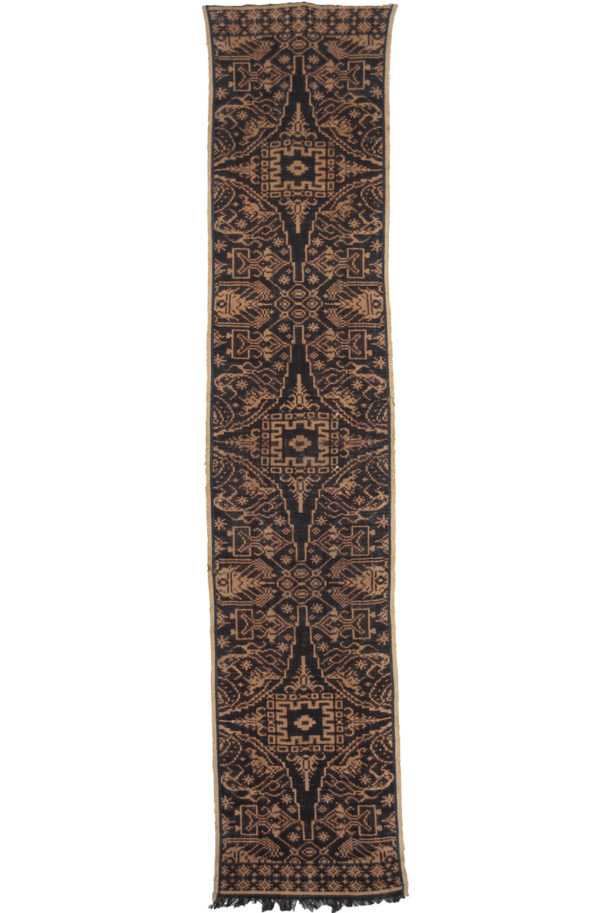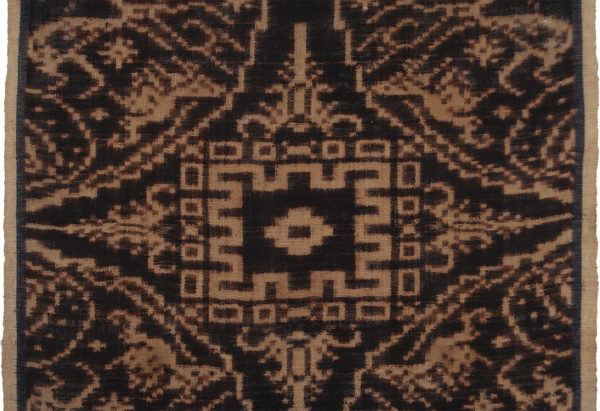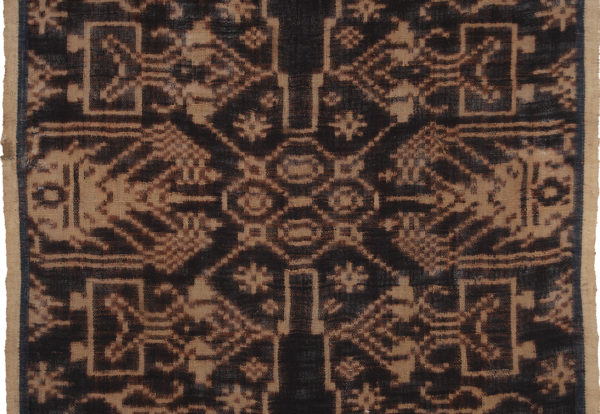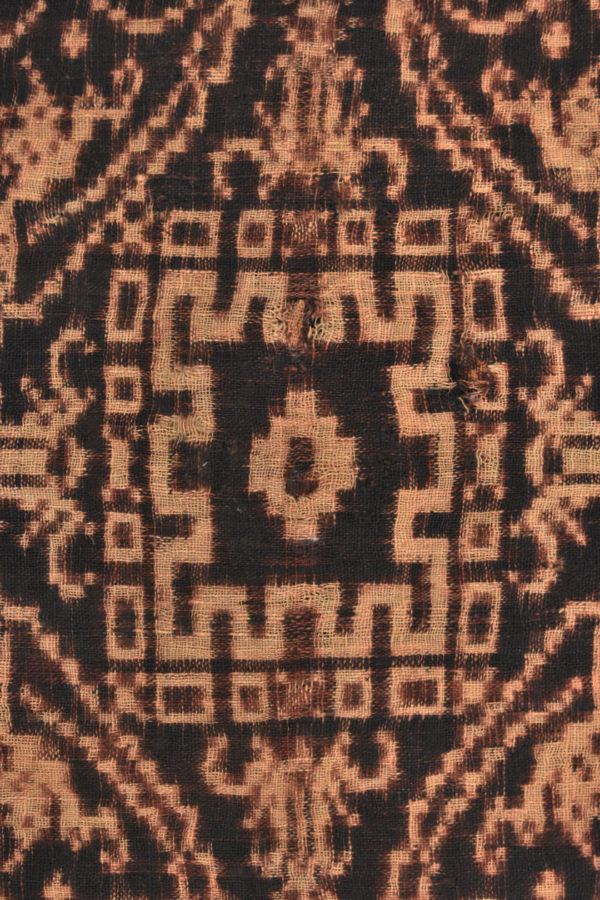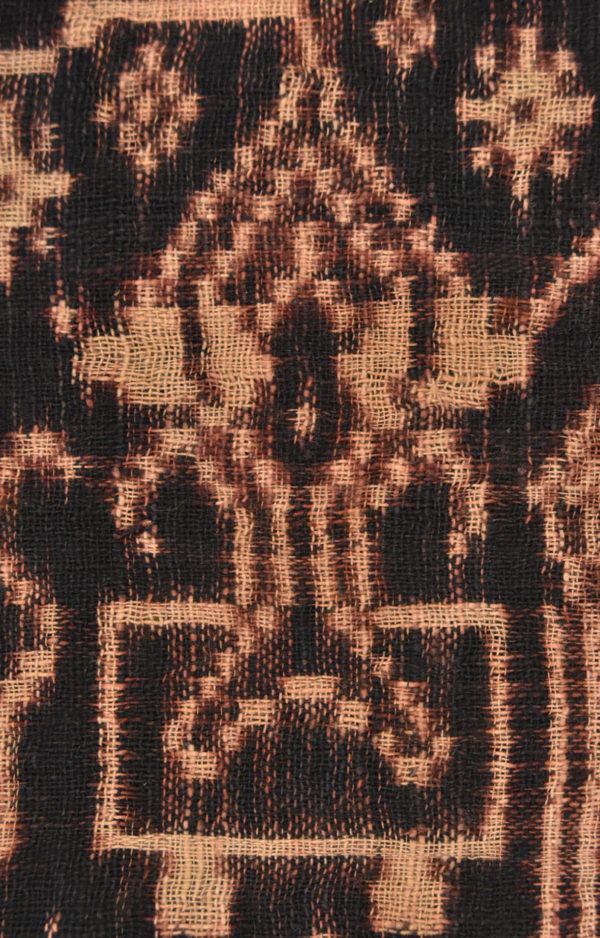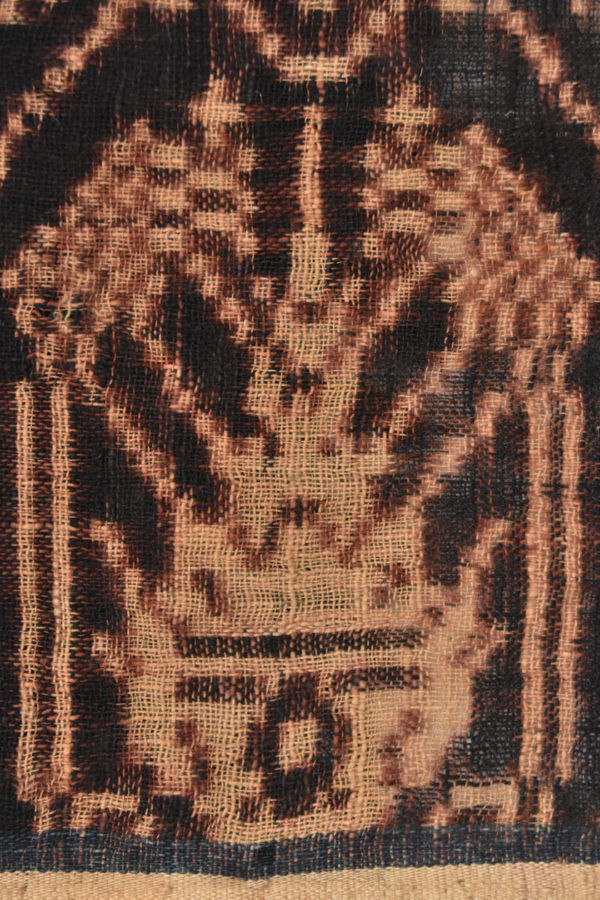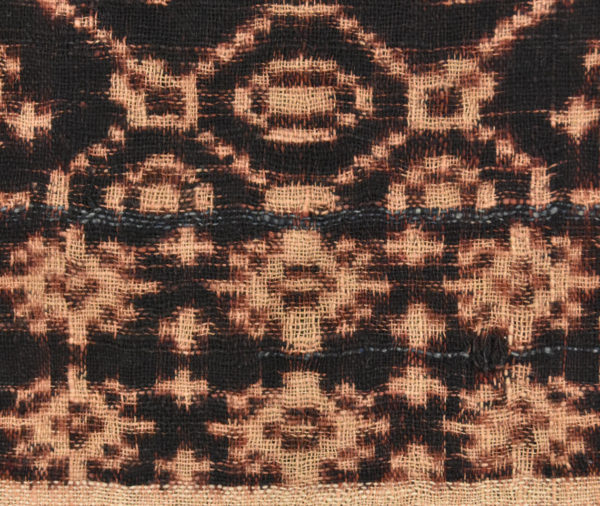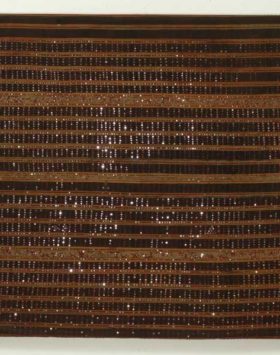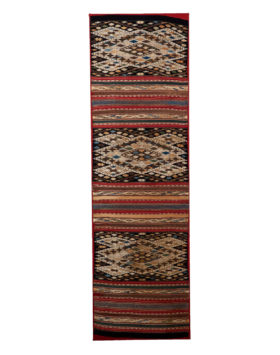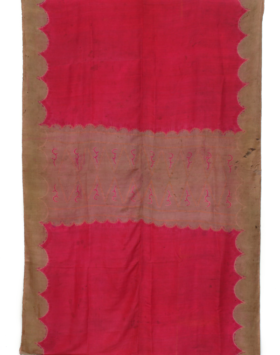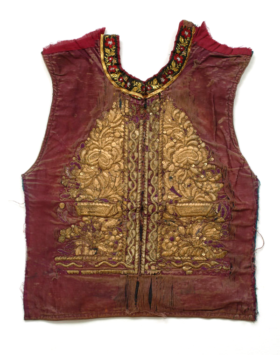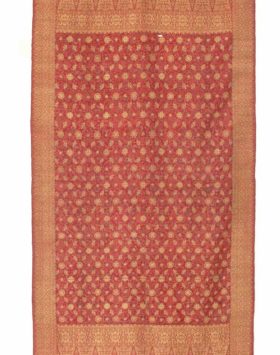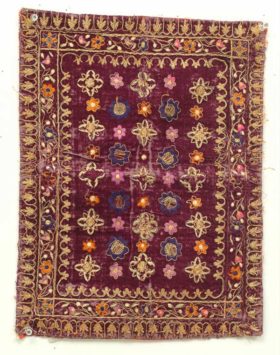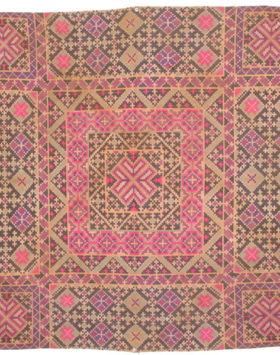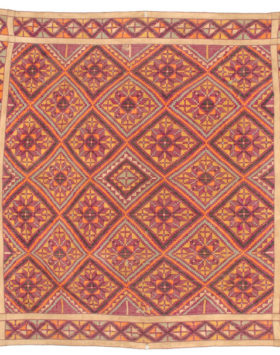Geringsing Wayang
In Indonesian textiles, realism is rare and not the perceived objective. In most cases, imagery is not dependent on literal recognition.
The creativity expressed in Indonesian textiles reflects an integration of culture and daily life, fusing knowledge, perception, and cognition. A geringsing cloth is made through a difficult double-ikat process. Ikat, like drawing, is about line and creating a composition. This is accomplished on taut threads that are strung so closely and tightly that they form a smooth canvas-like surface. To produce a double ikat both the warp and the weft threads of a textile are tied and dyed in the desired pattern before the maker begins weaving. Each distinct color in a motif is tied with a set of different knots.
This is one of about 20 different styles of geringsing ceremonial cloth. The common characteristics of all geringsings are hand spun cotton, loose plain weave, and a muted palette of brownish red, black and off-white.
In this example, semi-circular areas, defined by the rays of the large star-shaped motif with a stepped rectangle in the center with groups of human figures around the ground, seated on pedestals. It is reminiscent of the shape of wayang shadow puppets.
Geringsings are made in one town in Bali, Tenganag Peringsingan. They are worn as shoulder, breast, or waist cloths. They are sacred cloths and used only on ceremonial occasions such as rites of passage or holidays; they are also believed to exude a protective force to ward off dangers.
Circa: 19th c.
Origin: Bali, Indonesia
Material: Cotton
Condition: Good antique condition
Dimensions: 75" X 16"
Inventory number: TX4800
$3,100
SOLD
Call: (646) 370-6801
E-mail us: yosi@sarajo.com
